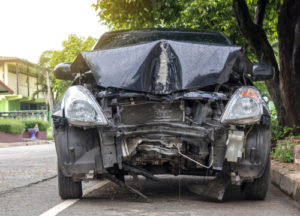
Negligence is when people fail to act how a reasonable person would have acted in the same situation. Suppose you are suing someone in civil court. In that case, you often need to prove that the other person was required to perform in a certain way and failed to do so. This is how people often collect compensation in personal injury or wrongful death claims.
There are two types of laws for proving negligence: contributory and comparative negligence. Contributory negligence laws prevent you from suing if you were in any way responsible for the accident. Comparative negligence laws allow you to pursue compensation even if you were partially at fault for what happened. North Carolina still practices contributory negligence, making it difficult for people injured in accidents to sue those more at fault.
What Is Negligence?
Negligence is when someone has a duty to act in a certain way and fails to do so. Negligent actions can include failing to do what you should have or doing something that doesn’t align with what you should have done.
For example, let’s say you are in a car wreck. The car accident happened because the other driver did not use his turn signal or look both ways before he turned. As a result, his car collided with your vehicle. In this instance, the other driver was negligent.
Or let’s say you fall at a store because the store owner failed to warn you that the floor was still wet. In this case, the store owner was negligent because she did not provide adequate warning to her customers about the potential hazard risk.
Often in a civil court case, you and your legal team need to prove that the party you are suing failed to act in a certain way. Then you need to prove that their actions contributed to your injuries or other damages.
Contributory Negligence and Comparative Negligence
Negligence laws often govern what happens in civil court cases like personal injury lawsuits. But there are different types of negligence laws that impact who can sue. The two main types are contributory negligence and comparative negligence.
Comparative negligence laws allow you to pursue compensation even if you were partially at fault for the accident. For example, let’s say you are in a car accident. While most of the responsibility lies with the other driver, you also failed to use your turn signal, so the accident is partially your fault.
Under comparative negligence systems, you can still sue the other driver, even though you still contributed to the accident.
Under contributory negligence laws, you cannot file a lawsuit if you were in any way responsible for the accident. This is true even if the other participant was more at fault than you were.
Personal Injury Lawyer Near Me 828.286.3866
Contributory Negligence Laws in North Carolina
Many states have comparative negligence laws, giving more options to victims of accidents in civil court cases. North Carolina is one of the few states that still has contributory negligence laws. These laws can make it difficult for victims to get compensation in wrongful death and personal injury cases.
Often, the person responsible will assert that the victim contributed in some way. For example, let’s say a pedestrian gets hit by a driver but was walking on the wrong side of the road and not wearing reflective clothing while walking at night. The driver can claim the pedestrian is partially at fault. Seeking appropriate legal help after your accident can help you understand North Carolina’s laws and what options you have available.
Benefits of Consulting with an Attorney
At Farmer & Morris, PLLC, we do not charge you for our services in a personal injury case unless we help you get compensation. We will examine the circumstances of your case and whether or not you were partially responsible for the accident.
We can help you determine if you are eligible to sue for compensation under North Carolina law. If we take your case, we work to get you the compensation you deserve because of the negligent actions of the other person or group.
Get a Free Consultation Today
It can be confusing to understand North Carolina’s laws and go about proving negligence after your accident. The lawyers at Farmer & Morris, PLLC, are ready to help you with your case. We can carefully review your case to help you determine who was at fault. We can then help you decide whether you are eligible to file a lawsuit.
We are ready to help you through this confusing time and answer your questions. Contact us today for a free consultation.
References:
- https://www.law.cornell.edu/wex/negligence
- https://myfox8.com/news/greensboro-mom-starts-petition-to-change-law-after-driver-hits-kills-daughter/
- https://www.law.cornell.edu/wex/comparative_negligence
- https://www.law.cornell.edu/wex/contributory_negligence









